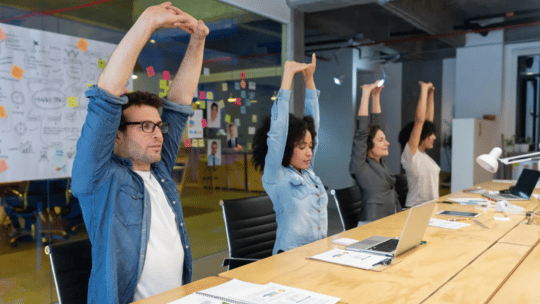 The surprise came first from one of Google co-founders. In a recent interview he defended maybe it was time to rethink the 40 weekly hours model. Larry Page said the idea of all us needing to work frenetically, in order to satisfy our needs, does not match the reality – according to anthropologists the main needs will be a home, security and opportunities for children - Page even suggested that maybe 4 hours a day would be enough. The surprise came first from one of Google co-founders. In a recent interview he defended maybe it was time to rethink the 40 weekly hours model. Larry Page said the idea of all us needing to work frenetically, in order to satisfy our needs, does not match the reality – according to anthropologists the main needs will be a home, security and opportunities for children - Page even suggested that maybe 4 hours a day would be enough. Despite not being itself a new idea, it came to trigger a wave of discussions and articles in the newspapers and social media all over the world surrounding the merits and opportunities of the measure, with some people actually suggesting that Page lived only in the multimillionaires world. With supporters and critics still loading their weapons one more argument came back to the newspapers, now by the voice of one of the richest person of the world. "People should work three days per week, eight hours a day" stated Carlos Slim, owner of the telecommunications operator America Movil. The Mexican entrepreneur Carlos Slim considers collaborators would have a better quality of living, more free time and be more productive. In contrast, workers would extend their professional life until they were 75 years old. The truth is the discussion of the reduction of the weekly working time is not new and each time it comes back motivates passionate discussions among those in favour and against. We have assisted to a change from the pre-industrial period where, in the western world, people worked from dawn to dust without rest to shift work - intertwined with rest - until the current 40 weekly hours. However, all this discussion risks being outdated and swallowed by the events and major trends that currently cross the globe, still without being possible to prospect their impact in this passionate discussion. Currently, in the majority of cases, companies search, more and more, more flexible work solutions and complementary to physical spaces of traditional offices - such as the virtual offices or the coworking. On the other hand, workers spend increasingly more time outside the office and in displacements, with the office becoming the place where they are at each moment. Finally, the cases of global companies or not that care about, more and more, with the individual goals to be achieved and respective timings than the need to monitor and know if the eight hours are or not being fulfilled by each collaborator itself. The important is the fulfilling of the individual goals and, therefore, collective ones. However, in this game, there are powerful forces in dispute. It will be enough for us to remember a very recent case which evolved LinkedIn, a technologic matrix company where flexibility, individual accountability mobility and youth are pointed as being transversal to the company. The social network was forced to an agreement that predicts the payment of 6 million dollars to 359 current and past workers. The reason? Accounting irregularities of labour time among the more of 2000 company workers between February 2012 and February 2014. We are facing a new paradigm where the watchword is increasingly more the result, regardless of the time and place where the work is done. Carlos Gonçalves Avila Business Center's CEO |
Other articles
In today?s competitive job market, attracting top talent is only half the battle. Retaining...
The Re:Space is a project idea that aims to transform underutilized outdoor spaces into...
Avila Spaces has just launched a new initiative that promises to energize the business ecosystem...
Coming back to the office after a vacation can feel like a shock to the system. Let's...
Holidays are meant to be a time of rest, joy, and reconnection?with ourselves, others, and the...
We currently live in a reality where acceleration is a constant. More and more, we seek...
In the modern, fast-paced workplace, productivity often feels like a race against time....
The second edition of Remote Week in Fundão has been confirmed. In 2025, a new group of...
Avila Spaces has been awarded the prestigious ?Cinco Estrelas Regiões Award? in the ?Coworking...
Avila Spaces announces its sponsorship of Pedro ?Figgy? Figueiredo, one of Portugal's most...
After its initial launch aiming to provide information on the Web Summit 2024 and Lisbon's...
Avila Spaces has introduced, in collaboration with Elbo Pte, an open-access virtual assistant,...

















